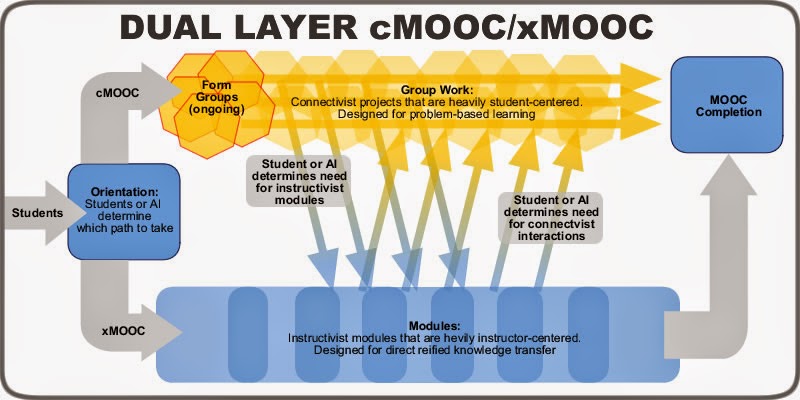It's the battle of the SPOCs!

"Fractured Spock" - by me and Net Art Generator, for #clmooc Over the past couple of years, since the silly acronym "SPOC" was invented to denote a course that was the antithesis to the MOOC, a Small Private Online Course , I've had issues with the acronym, and took exception to this new discovery on the part of schools that newly invented this form of education, considering that there are schools that have been doing it since the early aughts. In any case, I was finally going through my Pocket account today, trying to read as many things as I've saved for later reading since Rhizo15 when I came across a couple of articles that really made me roll my eyes a bit and made me want to facepalm... The first article is a featured article in Harvard Magazine, July/August issue, titled Is Small Beautiful? This was a fairly quick read, but I couldn't help but think that this was mostly a PR piece on the part of Harvard and Harvardx. There is a lot ...







